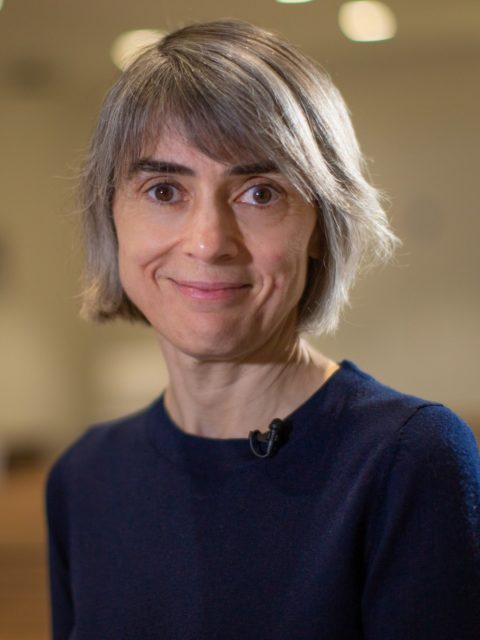
Professor Dame Ottoline Leyser
Professor Dame Ottoline Leyser is the Chief Executive of UK Research and Innovation (UKRI) and Regius Professor of Botany at the University of Cambridge.
UKRI brings together the UK’s Research Councils, Innovate UK and Research England, operating with a combined budget of more than £8bn per year.
Prior to this Ottoline Leyser was Director of the Sainsbury Laboratory, University of Cambridge, an interdisciplinary research institute combining computational modelling with molecular genetics and cell biology to elucidate the dynamical systems underpinning the control of plant growth and development. She has made important contributions to understanding the role of plant hormones in developmental plasticity, using the control of shoot branching in Arabidopsis as a model system.
Ottoline has a long-term interest in research culture and its effects on the quality and effectiveness of the research system. She chaired the Nuffield Council on Bioethics project examining these issues and has been actively engaged in work aimed at generating a more inclusive, creative and connected culture. She has worked extensively in science policy, for example serving as Chair of the Royal Society’s Science Policy Expert Advisory Committee, Chair of the Management Committee of the University of Cambridge Centre for Science and Policy, and as a member of the Prime Minister’s Council for Science and Technology.
She is a Fellow of the Royal Society, a Member of the Leopoldina and EMBO, and an International Member of the US National Academy of Sciences. In 2017 she was appointed DBE for services to plant science, science in society and equality and diversity in science.
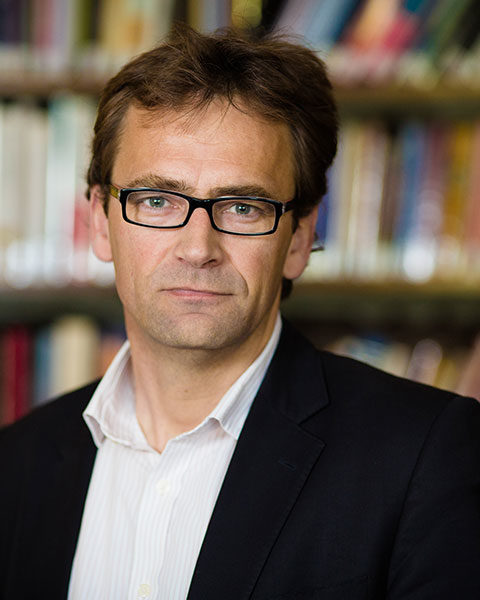
Professor Jim Hall FREng
Professor Jim Hall FREng is Professor of Climate and Environmental Risks in the University of Oxford. Prof Hall is internationally recognised for his research on risk analysis and decision making under uncertainty for water resource systems, flood and coastal risk management, infrastructure systems and adaptation to climate change. Professor Hall is a member of the Prime Minister’s Council for Science and Technology and is Expert Advisor to the National Infrastructure Commission. He is Chair of the Science Advisory Committee of the International Institute for Applied Systems Analysis (IIASA). He was a member of the UK independent Committee on Climate Change Adaptation from 2009 to 2019.

Professor Gordon Masterton, OBE DL HonDTech HonDEng FREng FRSE FICE FIStructE
Professor Gordon Masterton is Chair of Future Infrastructure at the University of Edinburgh and is Deputy Convener of the UK Collaboratorium for Research on Infrastructure and Cities (UKCRIC). After a career in major programmes (retiring as Vice President, Jacobs Engineering), he joined academia to focus on establishing a transdisciplinary research centre for infrastructure research. The Centre for Future Infrastructure within the Edinburgh Futures Institute was funded through the Edinburgh and South East Scotland City Region Deal. He has been President of the Institution of Civil Engineers and Chairman of the Construction Industry Council. He was awarded an OBE for services to civil engineering in 2008. He has lived and worked in the north of England, London, Scotland and Malaysia. He currently chairs the Independent Assurance Panel for Procurement on HS2 projects and chairs its Construction Advisory Panel. He is one of two Technical Advisors to Sir Peter Hendy’s Union Connectivity Review.
Recent publications include: A cross-national comparison of public project benefits management practices–the effectiveness of benefits management frameworks in application. Production Planning & Control 31 (8), 644-659.
Integrating the liberal arts into the body of knowledge for civil engineering systems engineers. Civil Engineering and Environmental Systems 37 (4), 234-243.
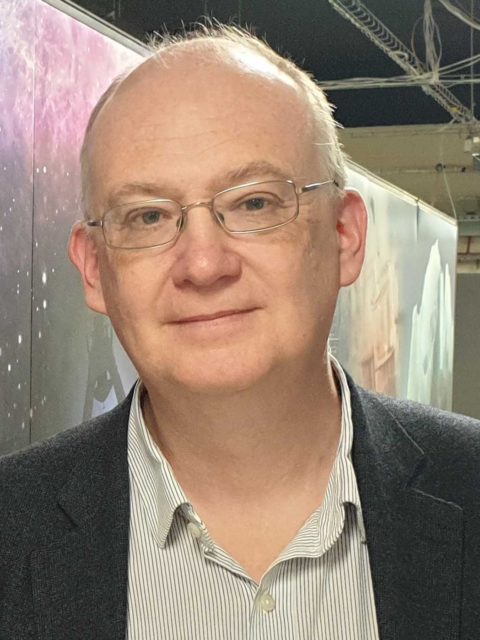
Dr Brian Matthews
Dr Brian Matthews leads the DAFNI and Data Science and Technology Group at Rutherford Appleton Laboratory (RAL).
He has over 30 years of experience in R&D development in computing, with a focus on tools, methods and standards for managing accessing research data from scientific experiments. He took a leading role in the development of the data management infrastructure that supports the ISIS Neutron and Diamond Light Sources, and has worked extensively on European programmes on Data Infrastructures. He leads the DAFNI team, developing data and modelling infrastructure to support research into national infrastructure, and is Co-I on projects extending its use including OpenCLIM and the UK Centre for Greening Finance and Investment initiative. He is co-investigator and technical lead on the Physical Sciences Data-science Service, one of EPSRC’s National Research Facilities.
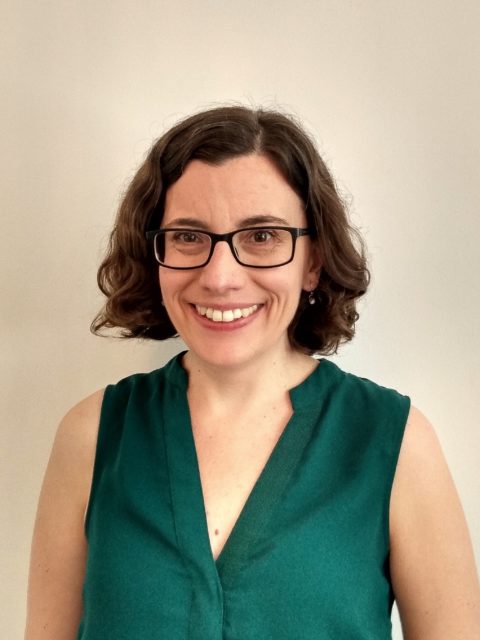
Kathryn Brown, Head of Adaptation at the Committee on Climate Change (CCC)
Kathryn is one of the UK’s leading experts on climate change adaptation and has worked for the past 18 years in a range of climate change roles at the Committee on Climate Change (CCC) and Defra. She currently leads the secretariat for the CCC’s Adaptation Committee. She directed the production of the UK’s third Independent Assessment of Climate Risk (CCRA3) and oversees the CCC’s analysis of progress in adapting to climate change in England. In the past she had led the Committee’s analysis on water, health, biodiversity, emergency planning, agriculture and forestry. Prior to 2012, Kathryn worked in Defra’s climate change team for ten years, covering climate change impacts and adaptation evidence, climate projections, international negotiations, and carbon budgets.

Mark Gaskarth, Head of Digital Twins at the Engineering and Physical Sciences Research Council (EPSRC)
Mark is Head of Digital Twins at the Engineering and Physical Sciences Research Council (EPSRC) within UKRI. For the past two years he has coordinated UKRI work on the development of a proposed future UK Digital Twins programme that would develop the UK national capability in digital twinning, together with the associated business case. This has involved working closely with policy leads in BEIS, colleagues across UKRI, and a wide range of contacts across industry, Government, and academia.
Prior to becoming Head of Digital Twins for EPSRC, Mark was Joint Head of Business Engagement overseeing EPSRC’s interactions with strategic business partners and developing new strategic business relationships, as well as leading on EPSRC’s Industrial CASE PhD investments. Mark’s first role in EPSRC was Head of Robotics and Autonomous Systems, including responsibility for the EPSRC investments within the Industrial Strategy Challenge Fund (ISCF) Robots for a Safer World Challenge.
Before joining UKRI, Mark had a career as a senior manager in the emergency services. In 2005, Mark completed a Masters’ Degree in Fire and Explosion Engineering passing with distinction. Mark has also completed a Post Graduate Certificate in Strategic Leadership and brings much experience of leadership in collaborative and partnership settings.
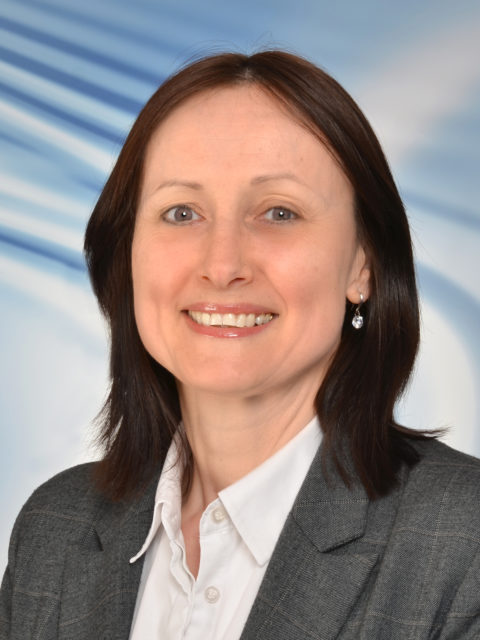
Professor Liz Varga
Professor Liz Varga has a chair in Complex Systems at University College London (UCL), London, UK (2018-). She leads the Infrastructure Systems Institute (UCL) and is section head for Infrastructure and Cities in the Civil, Environmental, and Geomatics Engineering Department (UCL). She is principal investigator for the coordination node of UK Collaboratorium for Research in Infrastructure and Cities (UKCRIC) and is involved in several UKRI funded research projects and departmental teaching commitments. She is publishing actively and has over 60 journal articles on infrastructure systems: energy, transport, telecommunications, water and waste.
She is a regular speaker, reviewer and advisor on infrastructure matters focusing on sustainable innovation, resilience and digitalisation, with a particular focus on the integration of heterogeneous systems, related ontologies and methods. She has advised various organisations on complexity in infrastructure systems including Royal Academy of Engineering, World Economic Forum, United Nations office for Disaster Risk Reduction, and UK’s National Digital Twin Programme (NDTp). Prof Varga is a fellow of the Chartered Institute of Building Engineers (FCABE) and the Higher Education Academy (HEA) and was awarded the Research Prize (Cranfield University) (2014, 2016). She is a commissioner with the National Preparedness Commission and received her Ph.D. degree and MBA from Cranfield University, UK and a first class honours degree from the Open University, UK in pure maths and data analysis.
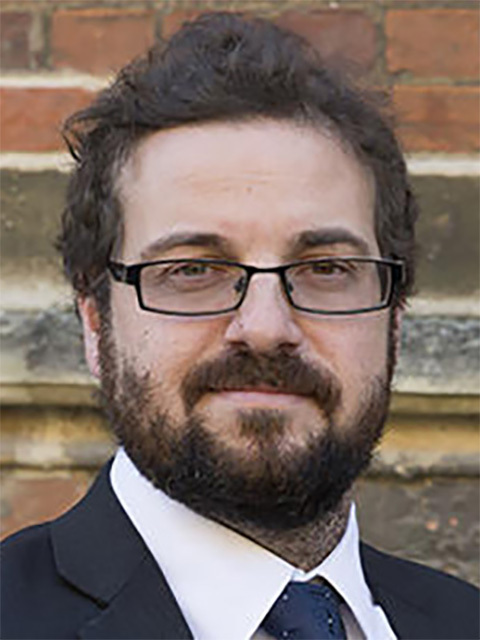
Professor David Wallom
Professor David Wallom is Associate Professor and Associate Director – Innovation of the Oxford eResearch Centre, where he leads two separate research groups Energy and Environmental ICT and Advanced e-infrastructure & Cloud Computing. He has led over 80 research projects in areas such as Cloud utilisation, Cybersecurity, Smart Energy Grids, Research Data Management, Green IT, ICT Security and Institutional Repositories with an overall research theme on resilience and reliability of societally relevant services. He is the program lead for the climate research facility, Climateprediction.net and Data lead for the UK PFER demonstrator Local Energy Oxfordshire.
He is a member of the GCHQ recognized Academic Centre of Excellence in Cyber Security and is also Co-Editor in Chief of the Elsevier journal SoftwareX. He has previously been a member of the UK Space Agency Ground segment Advisory Group, academic Board Member of the HEFCE Institute for Environmental Analytics, Chair of the Scientific Advisory Board for the Norwegian Information for Action e-Science Centre and a member of the SAB for the NEGI Tools for Investigating Climate Change at High Northern Latitudes (eSTICC) & Ensemble-based Methods for Environmental Monitoring and Prediction (EmblA) centres.
Within the UK Centre for Greening Finance and Investment he leads the project on development of sustainable e-infrastructure services to provide platforms for climate services for the financial services sector.
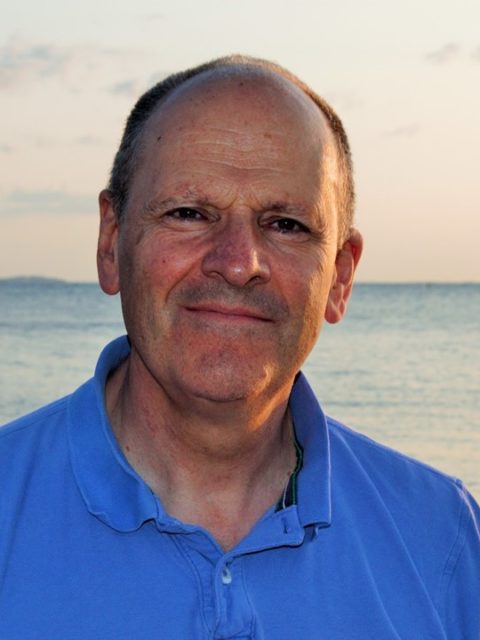
Professor Robert J. Nicholls
Professor Robert Nicholls is an expert in assessment of environmental and climate problems, taking an interdisciplinary system approach which facilitates policy analysis. This includes the ITRC/Mistral projects on national infrastructure provision and the CLIMSAVE integrated assessment of climate change in Europe. Much of his work has focused on coasts and climate change. He led the Tyndall Coastal Simulator, the NERC-funded iCOASST (Evolving coastal geomorphic sediment systems), “Coastal landfill and shoreline management”, and “Coastal resilience in the face of sea-level rise projects. He has extensive international experience, especially in coastal cities, deltas and small islands. He has advised national governments (e.g., UK, Netherlands, Bangladesh, Singapore, the Maldives) and intergovernmental organisations (e.g., OECD; World Bank) on climate change and coastal issues. He was a lead author to five reports of the Intergovernmental Panel for Climate Change (IPCC) assessment process. He currently co-leads the World Climate Research Programme Sea-Level Rise Grand Challenge to deliver sea-level science to support better coastal impact and adaptation assessment and is a member of the ASCE/COPRI Coastal Engineering Research Council. Of relevance here, within the UK Climate Resilience Programme he leads the OpenCLIM project which is developing integrated methods for future Climate Change Risk Assessments using DAFNI.
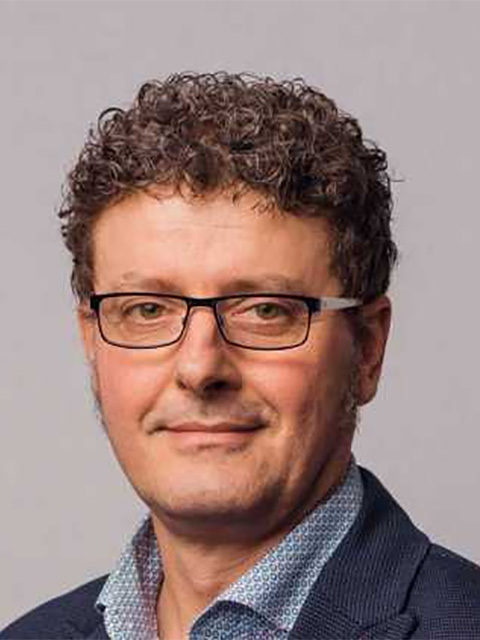
Professor Daniel Coca
Daniel Coca is Professor of Nonlinear and Complex Systems and Head of the Department of Automatic Control and Systems Engineering at the University of Sheffield.
Daniel leads the Centre for Signal Processing and Complex Systems, is a Co-Director of the Sheffield Urban Flows Observatory and a governing board member of the Data and Analytics Facility for National Infrastructure (DAFNI).
Daniel’s research expertise covers modelling, analysis and control of complex systems, data analytics, machine learning and information processing, inverse problem theory and methods. He has published 139 peer-reviewed papers and won as a PI or Co-I, research grants with a value of over £50 million from EPSRC, BBSRC, MRC, US National Science Foundation and the Human Frontiers Science Program.

Tom Gowland
Tom is a back end senior software engineer who has been working on DAFNI for nearly 3 years. He is the Product Owner for one of DAFNI’s Agile teams and provides technical leadership for the project as part of the DAFNI Technical Lead team. Tom led the Pilot programme that informed a significant portion of the features you see on DAFNI today. As part of the programme, he provided support for National Infrastructure researchers in bringing their models onto DAFNI. He uses the knowledge gained during this phase of DAFNI’s life as well as his continuing relationships with external stakeholders to inform the future of DAFNI through his roles as Product Owner and Technical Lead. Tom has designed the architecture for many of DAFNI’s systems including the security service and the recently released visualisation suite.

Rose Dickinson
Rose is a full-stack software engineer who has been working in the DAFNI team for 2 years. She is a core member of the team, leading on the agile delivery of the project as well as being heavily involved in the development of almost all the elements of the DAFNI platform. Rose also plays a major part in external stakeholder engagement through her work on the NISMOD and OpenCLIM projects where she is responsible for bringing new features and models onto the platform.
Rose specialises in the delivery of complex front-end UIs which have included the drag and drop visualisation tool and the workflow builder. These features deliver a huge amount of value to DAFNI users, enabling them to build and run complicated system of systems workflows then analyse the results, without having any technical knowledge.
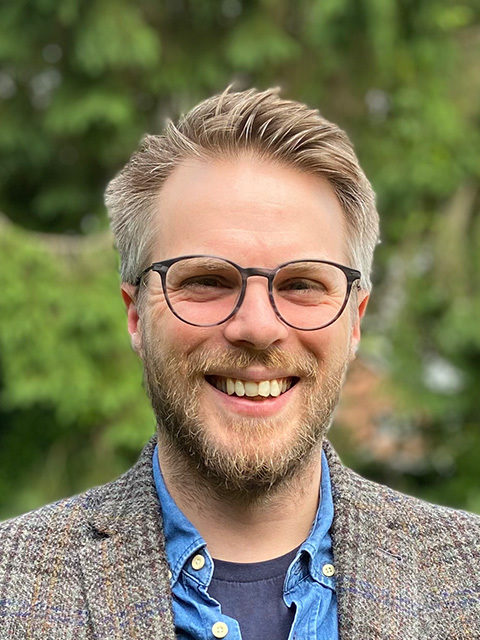
Alexander Kemp CEng
Alex is a Senior Software Engineer at DAFNI with over a decades’ experience in the design, development and test of various software systems. Having spent most of his career building large safety critical systems in the Defence Industry, He now enjoys a more data centric role designing microservices and data pipelines using frameworks such as Django, Docker and Kubernetes.
Alex’s primary focus has been leading the design and development effort of our cloud-based data infrastructure, data model and associated back-end API applications.
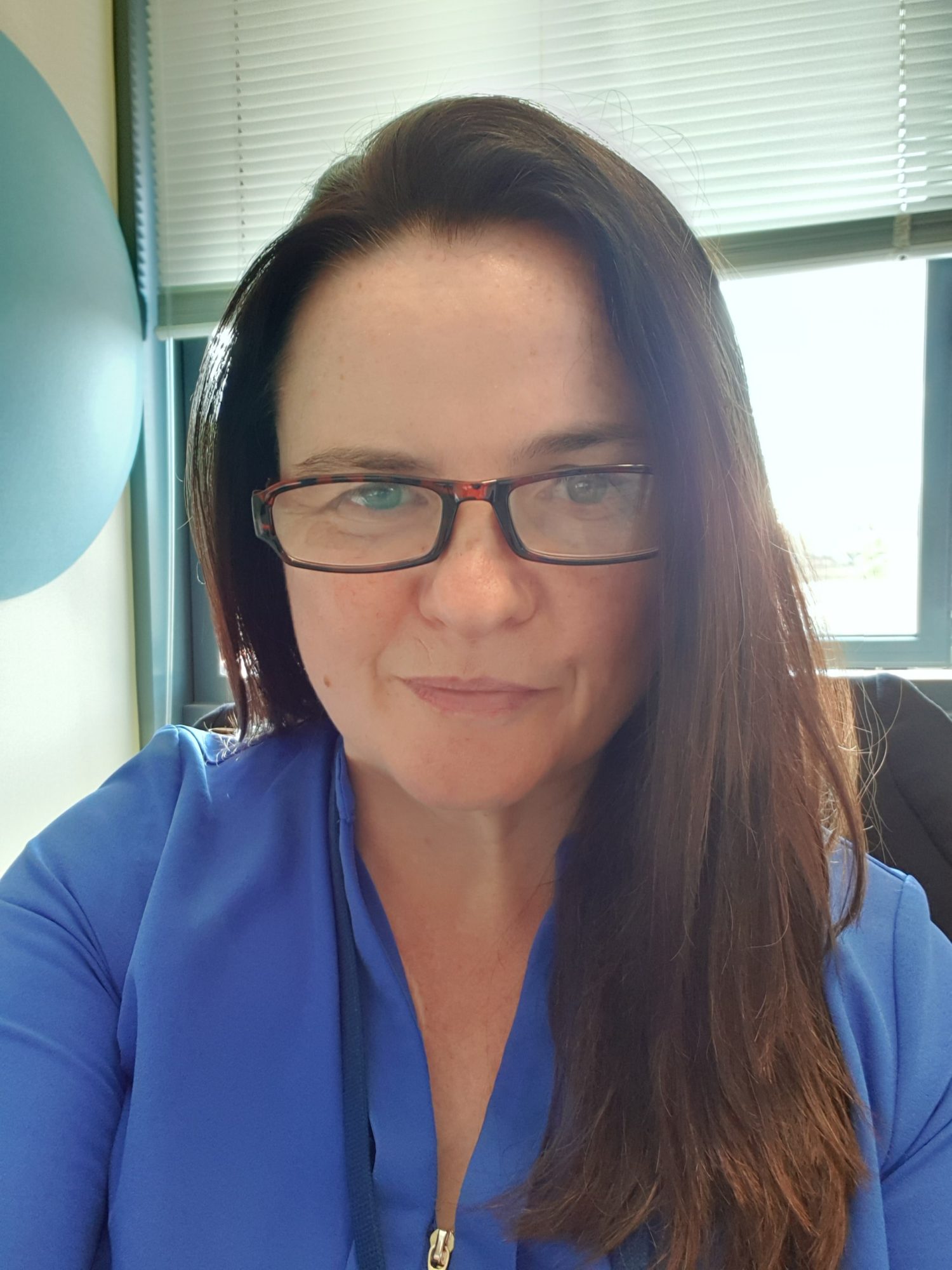
Marion Samler, DAFNI Partnership Manager
Marion’s role as Partnership Manager for DAFNI, is to lead on the development of a partnership programme for DAFNI and therefore engage with a wide range of academia, government and industry partners. This involves the development of partnership proposals, seeking new case studies to demonstrate DAFNI’s usefulness as well as engaging with researchers who are interested in accessing the DAFNI platform. She has developed the current programme of engagement events for DAFNI and is building sustainability cases for DAFNI’s future funding model. Marion’s previous roles have been within the Higher and Further Education sector. Her previous experience of working as a Project Manager for a Big Lottery project within the education sector across Oxfordshire as well as an Operations Director for a UK based learning technology charity, have been invaluable to the DAFNI project.
